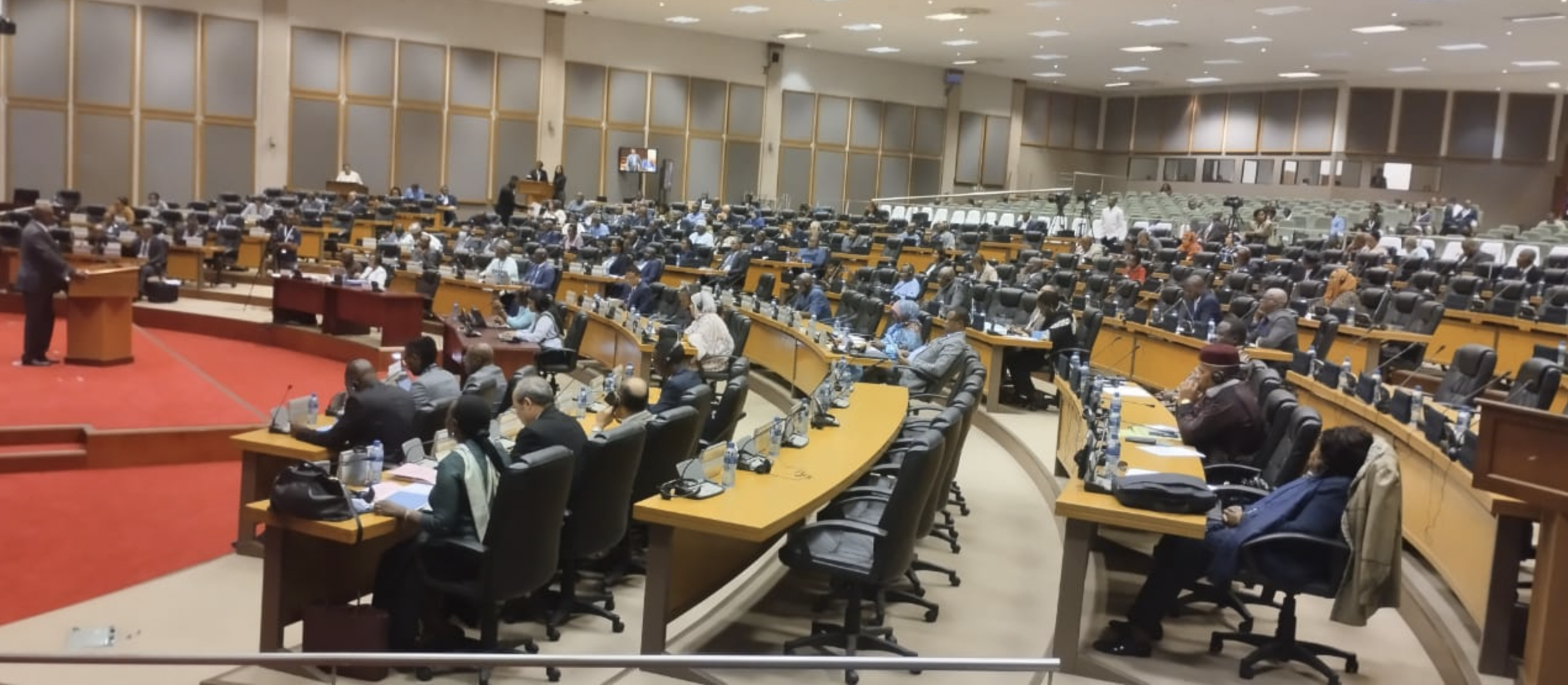AMENDMENTS TO PAP RULES AND PROCEDURE ADOPTED AMIDST UNANIMOUS SUPPORT FROM REGIONAL CAUCUSES
The amendments to the Pan-African Parliament’s Rules and Procedure was adopted today, November 3, 2022, amidst unanimous support from all the regional caucuses, bringing to an end the era of suspicions, bickering, and acrimony.
Prior to the moving of the motion for the adoption of the amendment, the chairpersons of the five regional caucuses, expressed their gratitude to their fellow MPs, the Bureau, and the numerous experts who assisted them for a good and thorough job.
The chairpersons for the regional caucuses showed appreciation for the transparent, consultative, and team-building atmosphere under which the entire amendment process was undertaken. They acknowledged the need to show political maturity in order to build a strong PAP that will meet the aspiration of the African people.
According to them, the progress of the PAP requires that the Parliament talk with one voice, devoid of any Anglophone, Francophone, Lusophone, or Arabic interest, but rather the interest of Africa.
Members of the Pan-African Parliament noted the historical significance of the occasion and also lauded the adoption of the African approach to solving issues, which is participatory democracy.
Some of the major amendments that were made to the Rules and Procedure include the thorny issue of rotation, the status, tenure and mandate of members, privileges, and immunities.
 The Rules of Procedure is central to the normal functioning of a Parliament as it aids the organization of its work. Like any living document, the Rules and Procedures are expected to be periodically reviewed to ensure their sustainability, currency, relevance, and effectiveness. This provides an opportunity for alignment with the PAP Protocol, and other policy decisions and facilitates the application and interpretation of the Rules.
The Rules of Procedure is central to the normal functioning of a Parliament as it aids the organization of its work. Like any living document, the Rules and Procedures are expected to be periodically reviewed to ensure their sustainability, currency, relevance, and effectiveness. This provides an opportunity for alignment with the PAP Protocol, and other policy decisions and facilitates the application and interpretation of the Rules.
Furthermore, the review of the Rules of Procedure provides an opportunity to codify consistent institutional practices recorded over the last ten years since the last amendments, with due consideration of best practices from comparable legislative bodies.
The review process was also necessitated by the recent decisions of the policy organs of the African Union (AU) which resolved the issue of the rotation of the presidency of the Parliament and the need to incorporate those decisions into the Parliament’s Rules of Procedure.
Story by Gilbert Borketey Boyefio






